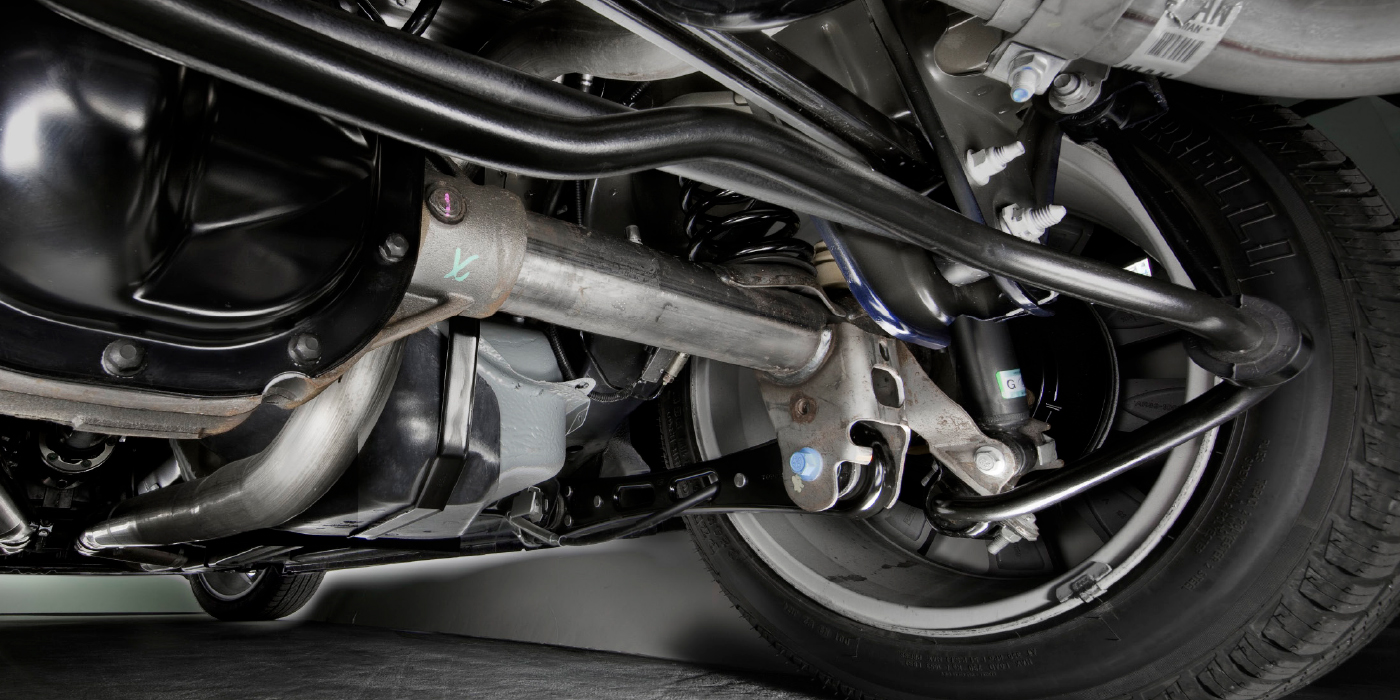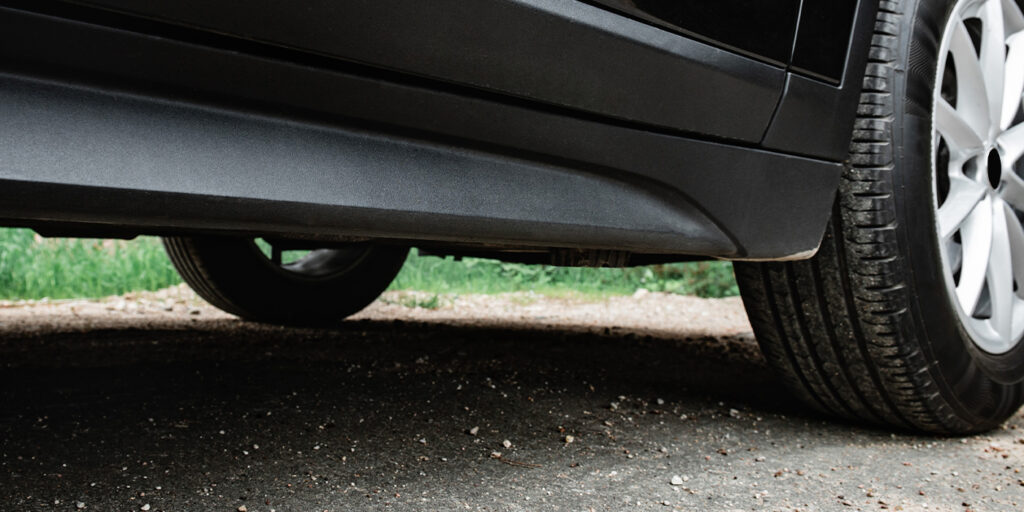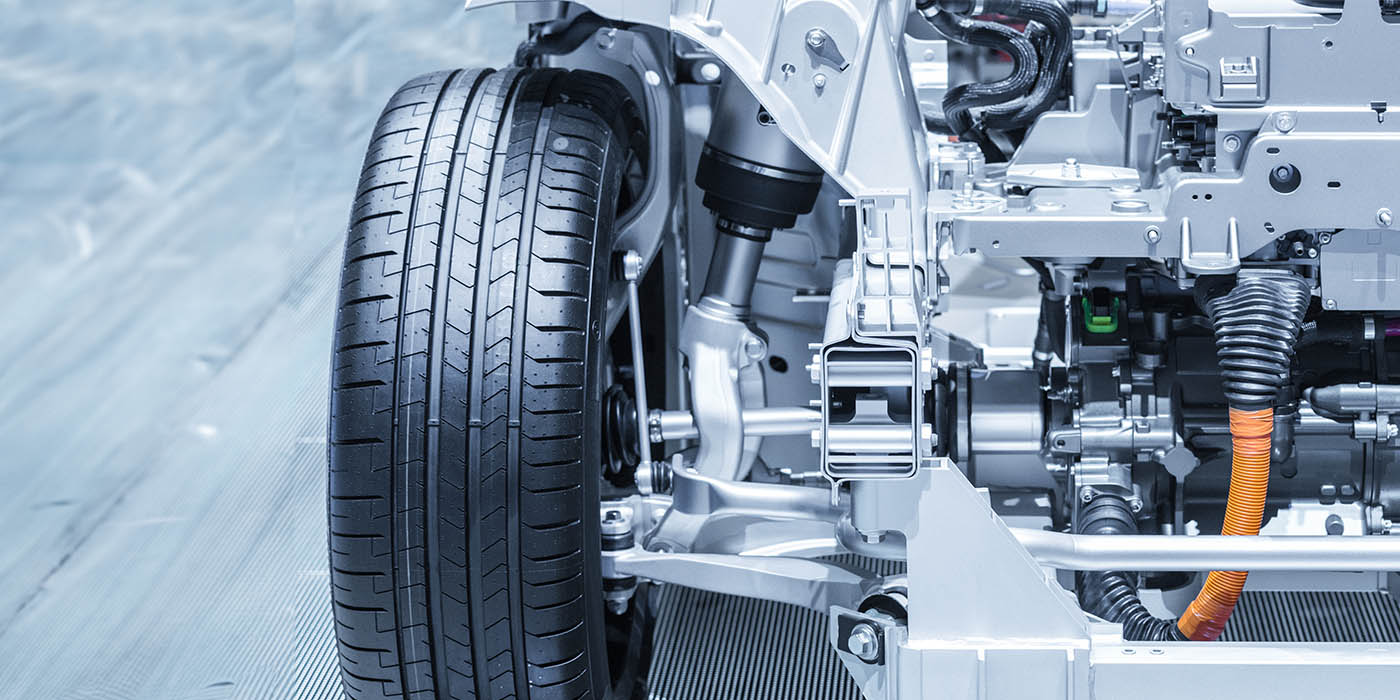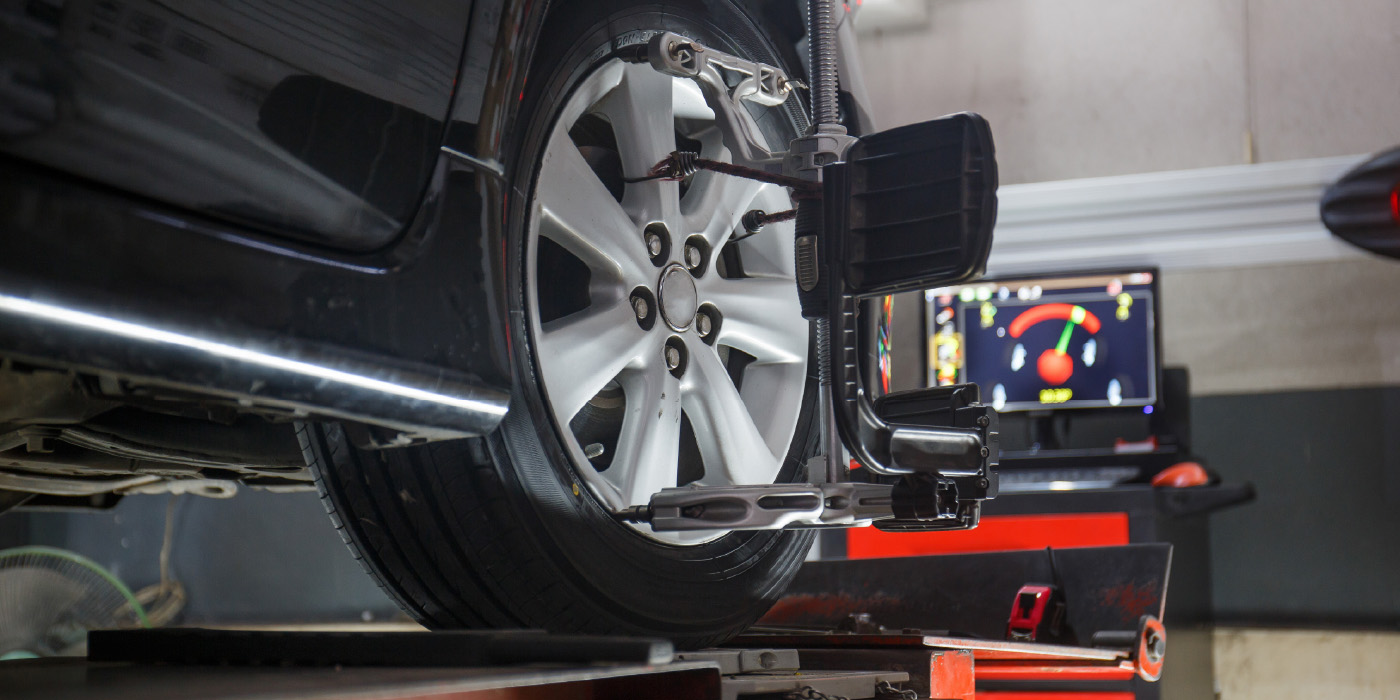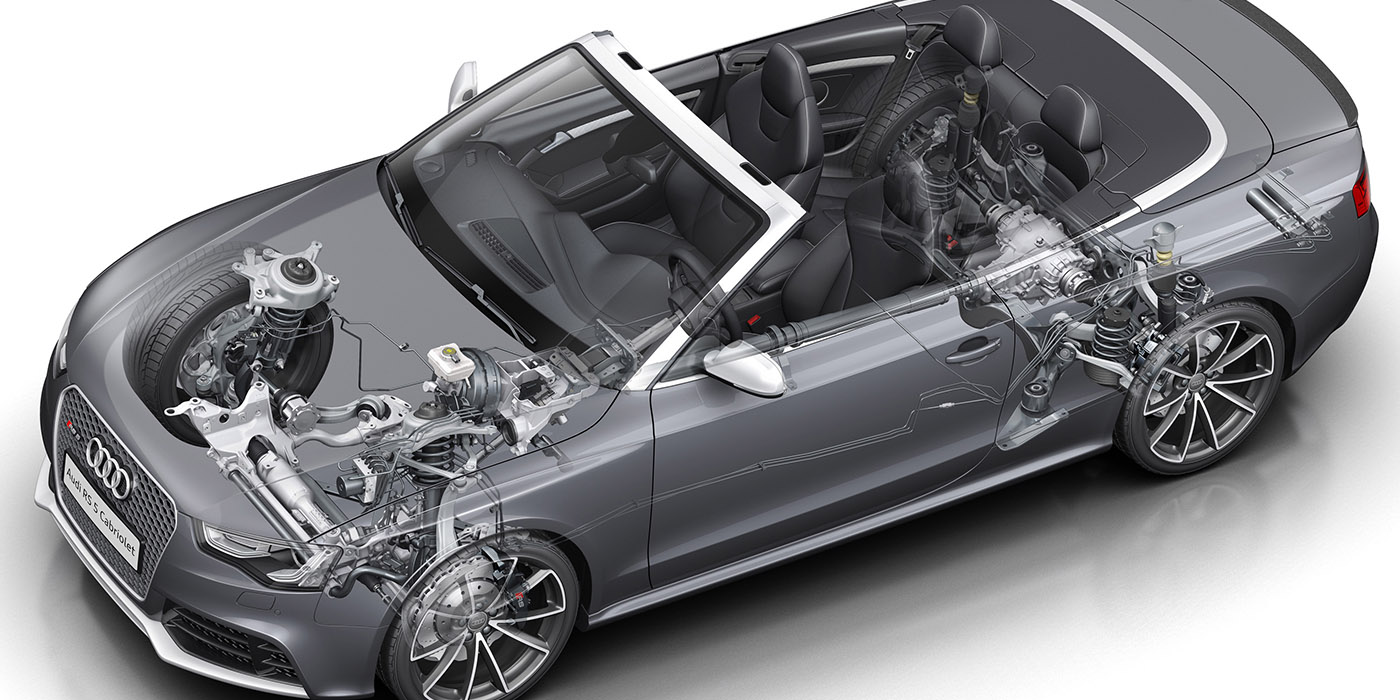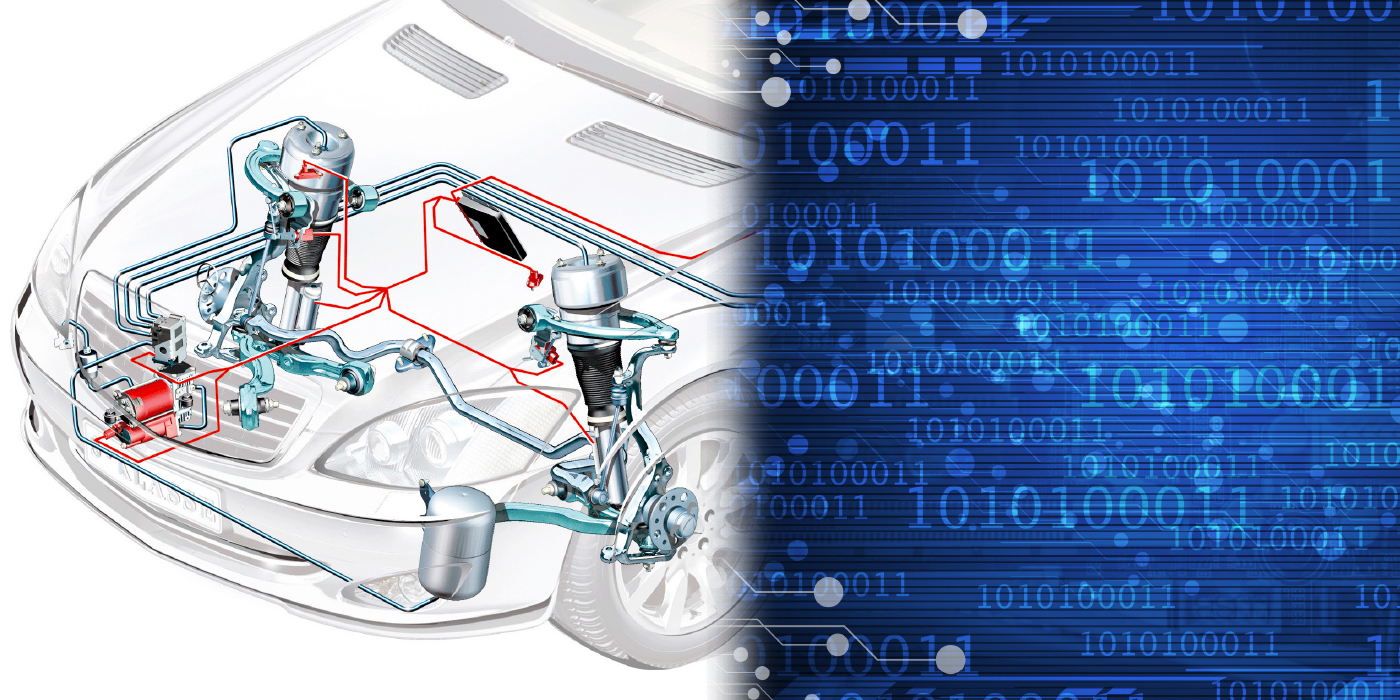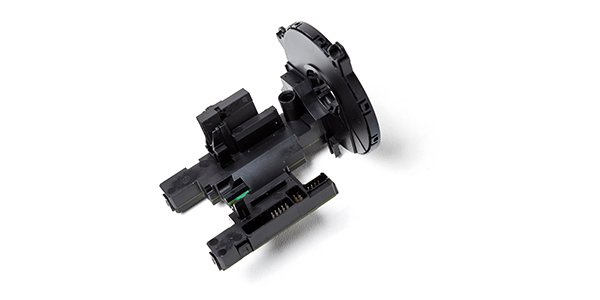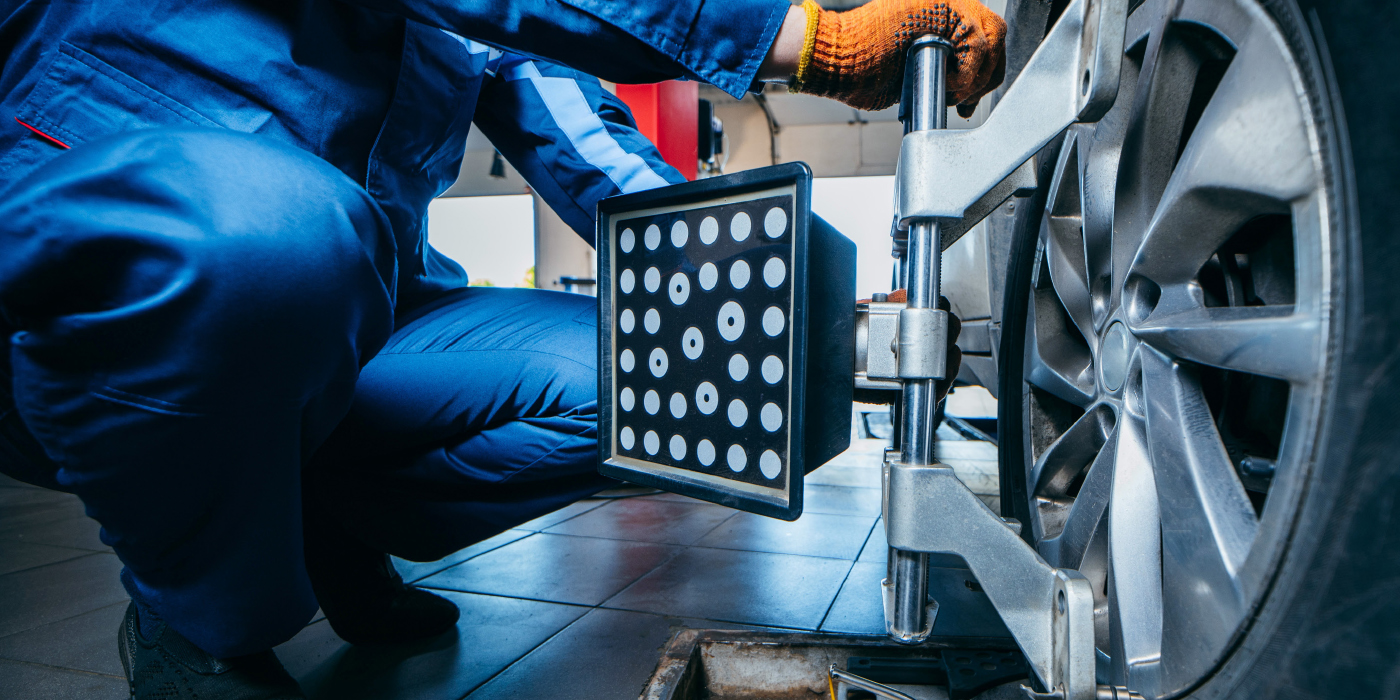ore people losing touch with what makes their mode of transportation run down the road, the more and more the manufacturer will be forced to maintain the passenger compartment from damage to avoid the proverbial complaisant driver from hurting themselves or their passengers.
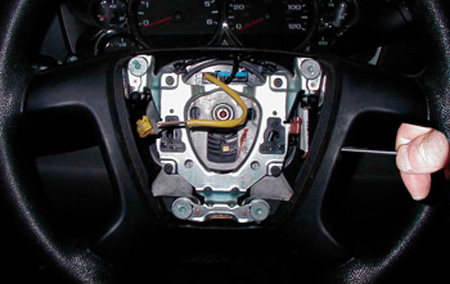 Component Removal
Component Removal
Driver airbags – These are held in place by either bolt-on fasteners or spring-loaded clip-in fasteners. To remove, identify the type of bolt used, remove it and release the airbag from the steering wheel. Spring-loaded clip-on designs can be more difficult and may require a special tool. Releasing the spring mechanism is often challenging and sometimes difficult.
Clockspring – This is the next component to address after the driver’s airbag and steering wheel are removed. It’s nothing more than an extension cord from the dash harness to the driver’s airbag providing a constant connection rather than a rolling spring contact (like many older horn contacts). Many manufacturers require clockspring replacement after a deployment, while others require you to inspect them for damage only. The most common problem with a clockspring is that it may melt during the airbag deployment, making reuse impossible. This component should never be repaired.
Passenger airbags – There are two types: one with a cover and one without. Most passenger airbags with a cover don’t require the removal or replacement of a dashboard and can usually be accessed and removed through the glove box. Those without a cover require more work and expense, often involving a complete instrument panel overhaul and/or replacement. Knowing how to overhaul an interior is critical to replacing this type of airbag.
Airbag components themselves are fairly well-designed to be bolt-on units. With the exception of a dashboard requiring removal or replacement, or for a side impact with a seat that requires rebuilding, most of these parts are easily installed and require few special tools. Changing a seat belt buckle pretensioner is no more difficult than replacing a buckle without a pretensioner. However, component replacement is only part of the job.
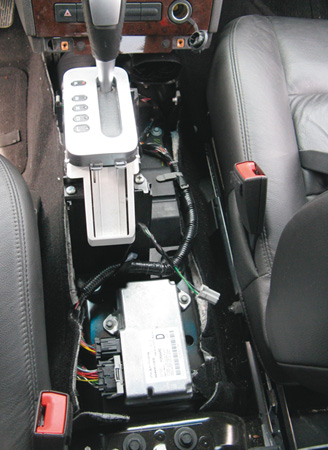 Once the correct parts are installed, many systems require seat recalibration or control unit configuration. If you think you have what you need to service and reset these systems, think again. Although the DLC connector has made most vehicle diagnostics uniform, the airbag systems are still outside that box. Also, the computer used for airbag codes is different from the computer used for the check engine light. These days, as an automotive technician you’re not just the guy that keeps a customer’s car tuned-up and running great, you’re also the person that can help keep them safe on the open road and possibly save a life or two.
Once the correct parts are installed, many systems require seat recalibration or control unit configuration. If you think you have what you need to service and reset these systems, think again. Although the DLC connector has made most vehicle diagnostics uniform, the airbag systems are still outside that box. Also, the computer used for airbag codes is different from the computer used for the check engine light. These days, as an automotive technician you’re not just the guy that keeps a customer’s car tuned-up and running great, you’re also the person that can help keep them safe on the open road and possibly save a life or two.
Scott “Gonzo” Weaver is the owner of Superior Auto Electric. He is the author of the book “Hey Look! I Found the Loose Nut”, that can be purchased online at Amazon.com or at gonzostoolbox.com.




